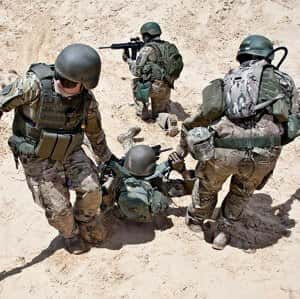
Almost a third of the troops that fought in the Persian Gulf War in 1990 and 1991 were later diagnosed with Gulf War syndrome.
What Is Gulf War Syndrome?
This is characterized by muscle pain, weakness, fatigue and cognitive dysfunction. It has been attributed to exposure to chemicals administered to guard against nerve gas attacks and pesticides to prevent insect-borne diseases.
Now, researchers at the University of California, San Diego, have traced the problems to changes in mitochondria. These are the energy factories inside cells.
CoQ10 to the Rescue
In a double-blind study, administering a high-potency co-enzyme Q10 supplement (100 mg per day, from the Danish company PharmaNord) alleviated symptoms in 80 percent of the patients. Since mitochondria are reliant on coQ10 to produce energy for all cells, especially muscle cells, this makes sense. Lead author Dr. Beatrice Golomb noted that this research could benefit civilians exposed to toxins as well as veterans with Gulf War syndrome.
[Neural Computation, Nov. 1, 2014]
Co-enzyme Q10 is a naturally occurring substance made in the body and used by the mitochondria. As we have written, CoQ10 has been used to alleviate heart failure and to mitigate symptoms caused by statin-type cholesterol-lowering drugs. These medications tend to deplete CoQ10 stores from the body.

